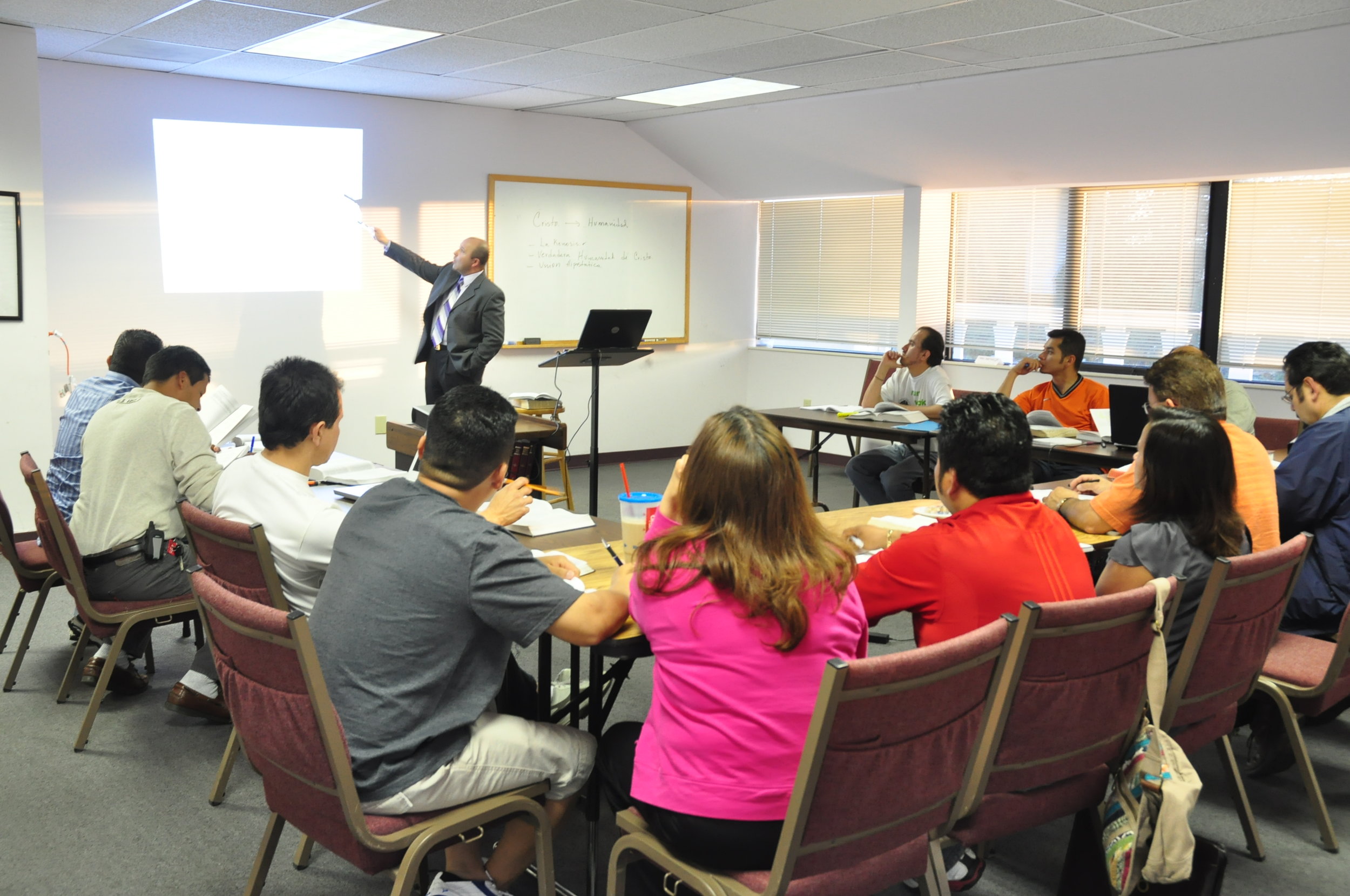BTCP may not be used for online training programs
The Bible lays out a consistent model for training disciples, leaders and ministers. When we look to the consistent record of Scripture we find a reproducible, relational, life-to-life equipping that transfers knowledge, skills and even character.
It is often observed that “We teach what we know, but we reproduce what we are.”
Similarly, in Luke 6:40, Jesus says, "A student is not above his teacher, but everyone who is fully trained will be like his teacher.” This is one of the many reasons all of our classes are live and face-to-face.
We do not find that online solutions are wrong, but rather sub-optimal. Their efficiency and convenience do do not tend to strengthen and reproduce disciples. Generally, distance learning is good for transferring information, but less effective for spiritual formation. This is why, even though our ministry operates in over 100 countries and the demand for training is very high, we are wholeheartedly committed to a face-to-face, reproducible, relational biblical model.
We hope this stance will not be take as an indictment of fellow Christians that do offer online training, but rather an exhortation to participate in a program that honors the biblical model.
The Old and New Testaments reveal a life-on-life pattern for ministry training and multiplication
1. The relationship between Moses and Joshua
a. Exodus 17:8-14– Moses entrusts Joshua with great responsibility and is there to support him as he undertakes that responsibility.
b. Deuteronomy 34:5, 9– Moses dies, and Joshua takes “the lead.”
c. Joshua 1:5– The Lord promises to be with Joshua as he was with Moses.
2. The relationship between Elijah and Elisha
a. 1 Kings 19:19-21– The pattern of Moses and Joshua is repeated with Elijah and Elisha.
b. 2 Kings 2:13-15– Elisha’s fellow prophets recognized that the Lord had set him apart as Elijah’s successor.
3. The relationship of the Lord Jesus to his disciples
a. Mark 3:13-15– The Lord chooses the disciples. He invests His life in them and empowers them for ministry.
b. Luke 9:1-6– The Lord entrusts the disciples with ministry.
c. John 15:8,16 – The Lord wills that the disciples bear fruit, fruit that will last.
4. In Acts 16:1-10; 17:1-12– the pattern is repeated in Paul’s relationship to Timothy.
As we saw in the examples of Moses and Joshua, Elijah and Elisha, the Lord Jesus and the 12, that:
The Word of God must be taught.
•You must teach what is in accord with sound doctrine. (Titus 2:1)
The Word of God must be modeled.
•Therefore I urge you to imitate me. (1 Corinthians 4:16)
•Follow my example, as I follow the example of Christ. (1 Corinthians 11:1)
•You became imitators of us and of the Lord; in spite of severe suffering, you welcomed the message with the joy given by the Holy Spirit. And so you became a model to all the believers in Macedonia and Achaia. (1 Thessalonians 1:6-7)
The Word of God must be transferred.
•As apostles of Christ we could have been a burden to you, but we were gentle among you, like a mother caring for her little children. We loved you so much that we were delighted to share with you not only the gospel of God but our lives as well, because you had become so dear to us. Surely you remember, brothers our toil and hardship; we worked night and day in order not to be a burden to anyone while we preached the gospel of God to you. (1 Thessalonians 2:6b-9)
*Note- the epistles to Timothy and Titus were sent many years after Paul trained them face-to-face and observers their character formation. Only later did he ordain them as Pastor/Elders over churches. See 2 Timothy 2:1-2 (emphasis ours)
"You then, my son, be strong in the grace that is in Christ Jesus. And the things you have heard me say in the presence of many witnesses entrust to reliable men who will also be qualified to teach others."

